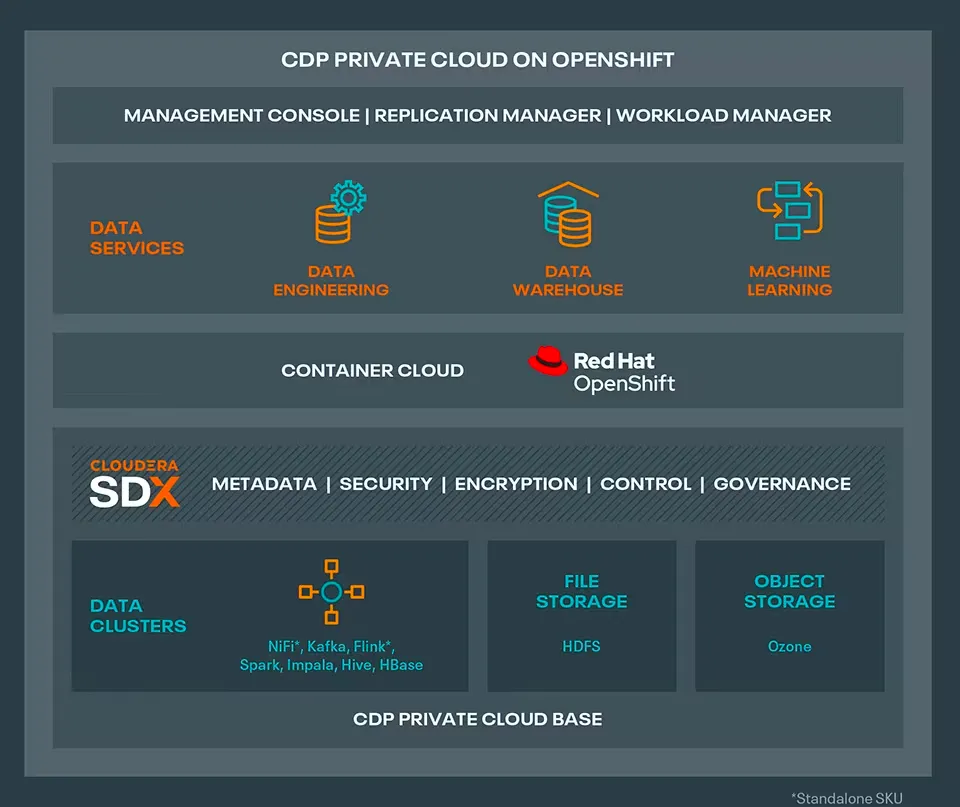In many science fiction movies, the crew asks a computer to solve a problem. The computer comes on with a calm voice to introduce possible solutions. The crew listens carefully and continues the conversation as if talking to a colleague. This was a scientific fantasy not too long ago. Many kids dreamed about the ability to have a computer help them navigate the spaceship in uncharted territories. Fast forward to 2023, and this is no longer a sci-fi imagining but rather a reality. Yes, we are talking about the introduction and wide adoption of generative artificial intelligence (GenAI).
This technology has introduced a new frontier. GenAI can not only help answer questions and introduce solutions, but it can deliver poetry, create paintings and even compose music!
At its core, GenAI is machine learning (ML) that involves multiple large datasets to compose content autonomously. It is coupled with a large language model (LLM) that uses deep learning to perform various natural language processing (NLP) tasks. It uses a transformer model with a huge dataset, hence the term large.
In sci-fi scenarios, GenAI is used in day-to-day operations. What if we apply that example to business scenarios, where members of the organization can use the model to help them make decisions relevant to their business? Examples include predicting supply chain availability to produce a product from a factory or indicating the need for inventory to a certain retail store to ensure availability to customers. The possibilities are endless.
This article discusses some of the main challenges organizations face when deploying GenAI workloads and how Cloudera and Red Hat are collaborating to help unlock the power of GenAI for organizations to better leverage their data with governance and an improved security posture.
Understanding the challenges and why private generative AI matters
It is undeniable that GenAI and LLMs have the power to transform the way businesses operate and interact with customers, but they certainly are not a silver bullet. Companies adopting them must implement practices to mitigate the inherent risks and challenges and explore ways to address them to create more responsible and reliable AI-powered solutions.
The first challenge associated with the enterprise adoption of GenAI is data privacy. This is a top concern for every organization, but GenAI introduces an added layer of complexity due to:
The vast amount of datasets required for model training.
The new data LLMs will generate as their output.
Additionally, prompts might inadvertently inject sensitive or confidential data into an LLM, leading to potential breaches and exposure. Moreover, GenAI services hosted on public clouds might pose a risk to organizations that store and process confidential and sensitive data that could be exposed during a security breach or unauthorized access.
To address these data privacy risks, organizations are bringing GenAI into private clouds to avoid moving their critical and sensitive data to a publicly hosted GenAI service. By doing so, enterprises can reuse foundation models within their private clouds, thus keeping their confidential data better secured and governed.
Another inherent challenge is the contextual limitation of LLMs. While publicly available AI services are attractive for companies, they need to build these interactive experiences on their proprietary data in the right context without sharing their data with external services. Powerful LLMs can cover diverse topics, from providing lifestyle advice to informing the design of transformer architectures. However, organizations have much more specific needs - they need the answers for their enterprise context.
Implementing a new GenAI project may require a new set of tools and skill set. However, using a data analytics platform running on a powerful development platform will provide easy access to corporations to implement a GenAI strategy and project. By utilizing these powerful platforms, organizations can utilize existing skills and knowledge, while expediting time to market release.
Cloudera Data Platform on Red Hat OpenShift
Cloudera Data Platform (CDP) Private Cloud delivers powerful analytics, transactional and machine learning workloads in a hybrid data platform powered by Kubernetes. Naturally, CDP Private Cloud Data Services runs on Red Hat OpenShift and utilizes many of the added capabilities that OpenShift provides.
Deploying CDP Private Cloud on OpenShift brings many advantages to the overall deployment, including:
- Improved security posture: As applications are deployed or updated, it's critical to provide dynamic security controls to help keep the business as safe as possible. OpenShift can apply security controls to the software supply chain, improving the security capabilities of applications without reducing developer productivity. Red Hat OpenShift enables businesses to control, defend and extend their application platform throughout its lifecycle.
- Governance and compliance: Red Hat Advanced Cluster Management for Kubernetes, included in Red Hat OpenShift Platform Plus, can help organizations more quickly deploy apps, manage multiple clusters and enforce policies across clusters at scale. OpenShift offers core security capabilities such as access controls, networking and enterprise registry with a built-in scanner. Red Hat Advanced Cluster Security for Kubernetes enhances this with additional security capabilities including runtime threat detection, full life cycle vulnerability management and risk profiling.
- Manageability and flexibility: OpenShift simplifies the deployment and management of a hybrid infrastructure, giving you the flexibility to have a self-managed or fully managed service running on-premises or in cloud and hybrid environments. Your organization can also use its AWS or Microsoft Azure committed spend on Red Hat solutions and services. Red Hat Advanced Cluster Management controls clusters and applications from a single console, with built-in security policies.
- Scalability: Applications running on OpenShift can scale to thousands of instances across hundreds of nodes in seconds. Streamlined and automated container and application builds, deployments, scaling, health management and more are included.

Red Hat and Cloudera offer a solution optimized for AI workloads that helps organizations manage the complete data lifecycle with greater security capabilities, putting data to work faster and reducing time to value. CDP Private Cloud on Red Hat OpenShift provides containerized data services for data engineering, data warehouse and machine learning, allowing companies to derive more actionable insights from their data in a hybrid cloud environment optimized for security-forward operations.
The CDP Private Cloud next-generation hybrid platform combined with OpenShift's enterprise-grade management tools can more consistently provision and scale analytic workloads and allocates just enough resources to meet demand, enabling organizations to:
- Empower every employee to drive value from data through an intuitive single pane of glass.
- Create enterprise-grade custom environments and maintain control of the entire data lifecycle while realizing the cost advantages of an on-premises private cloud environment.
- Deploy scalable data services with the flexibility to move data to any platform, including hybrid environments, with zero vendor lock-in.
- Deliver a more consistent experience across data practitioners and developers with a modern environment.
With Cloudera and Red Hat, businesses can build their own AI applications powered by an open source LLM of their choice with their data, all hosted internally in the enterprise. This empowers developers and lines of business—not just data scientists and ML teams—to truly democratize AI while maintaining an improved security posture, governance, compliance and manageability on one single platform. We invite you to explore more of what Cloudera and Red Hat can offer by exploring this customer story. Additionally, learn more about Cloudera Data Platform on Red Hat OpenShift here.
Sugli autori
Carlos has been working in the data and analytics space for the past 25 years and is passionate about helping organizations to transform complex data into clear and actionable insights. At Cloudera, he works with the partner ecosystem to ensure they are successful in positioning Cloudera's value proposition to the market.
Firas Yasin is a distinguished technology leader and award-winning author, currently serving as the Global Alliance Manager for AI/ML partnerships at Red Hat. With an impressive career journey, Firas has excelled in various roles, from being a Global Sales Leader at IBM to a skilled software engineer and a visionary Global Lead Architect.
With a keen eye for transformation, Firas navigated through various roles, from software engineer to the strategic position of a Global Lead Architect. He also served as a Sales Director at Atos for Hybrid Cloud. Throughout his career, Firas has demonstrated a remarkable ability to adapt to the ever-evolving technology landscape. Prior to his AI/ML focus, he focused on Cybersecurity partnerships at Red Hat. In summary, Firas is a dynamic professional, a thought leader in technology, and a driving force in the AI/ML partnerships.
Irving Yap empowers ISVs to serve their clients better by accelerating innovation on the hybrid OpenShift platform. He believes integrating MLOps and DevOps, leveraging data and intelligence in the data center, any cloud, and the edge, helps organizations meet customer needs (even before the customer thinks they need it).
Patrick is an Associate Principal Ecosystem Solutions Architect with the Global Solution Architecture team at Red Hat. He joined Red Hat in 2019 and currently works with our OEM and ISV partner ecosystem. Patrick is passionate about creating AI/ML, infrastructure and platform solutions with OpenShift.
Ricerca per canale
Automazione
Novità sull'automazione IT di tecnologie, team e ambienti
Intelligenza artificiale
Aggiornamenti sulle piattaforme che consentono alle aziende di eseguire carichi di lavoro IA ovunque
Hybrid cloud open source
Scopri come affrontare il futuro in modo più agile grazie al cloud ibrido
Sicurezza
Le ultime novità sulle nostre soluzioni per ridurre i rischi nelle tecnologie e negli ambienti
Edge computing
Aggiornamenti sulle piattaforme che semplificano l'operatività edge
Infrastruttura
Le ultime novità sulla piattaforma Linux aziendale leader a livello mondiale
Applicazioni
Approfondimenti sulle nostre soluzioni alle sfide applicative più difficili
Serie originali
Raccontiamo le interessanti storie di leader e creatori di tecnologie pensate per le aziende
Prodotti
- Red Hat Enterprise Linux
- Red Hat OpenShift
- Red Hat Ansible Automation Platform
- Servizi cloud
- Scopri tutti i prodotti
Strumenti
- Formazione e certificazioni
- Il mio account
- Supporto clienti
- Risorse per sviluppatori
- Trova un partner
- Red Hat Ecosystem Catalog
- Calcola il valore delle soluzioni Red Hat
- Documentazione
Prova, acquista, vendi
Comunica
- Contatta l'ufficio vendite
- Contatta l'assistenza clienti
- Contatta un esperto della formazione
- Social media
Informazioni su Red Hat
Red Hat è leader mondiale nella fornitura di soluzioni open source per le aziende, tra cui Linux, Kubernetes, container e soluzioni cloud. Le nostre soluzioni open source, rese sicure per un uso aziendale, consentono di operare su più piattaforme e ambienti, dal datacenter centrale all'edge della rete.
Seleziona la tua lingua
Red Hat legal and privacy links
- Informazioni su Red Hat
- Opportunità di lavoro
- Eventi
- Sedi
- Contattaci
- Blog di Red Hat
- Diversità, equità e inclusione
- Cool Stuff Store
- Red Hat Summit




